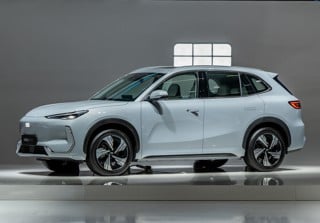The decision to offer your drivers a wide or limited choice of vehicles is a difficult one. Both have their advantages as well as drawbacks.
By reducing the range you may be less appealing to potential employees, but you can reap significant financial benefits through manufacturer loyalty. So what is right?
Is a restricted fleet choice list a good thing?
Tristran Campbell It is from an employer’s point of view. It enables the company to restrict the fleet to a core of ‘standard offerings’ for each grade, which can make life much easier when it comes to reallocating vehicles.
The main advantage comes from manufacturers’ support.
Andy Leeden Currently we have 10 manufacturers on our choice list which is a legacy situation and typical of the pharmaceutical industry. But the trend is changing.
Our experience suggests two to three manufacturers would be the best compromise.
Leigh Stiff Most definitely. A company can benefit from enhanced manufacturer support.
Granted, it sometimes causes employees to feel a little hard done by but when they get to drive a good spec model with minimal BIK and great fuel consumption they see the benefits.
Is a solus badge deal a smart move or is a manufacturer group better?
Andy Leeden Possibly, but it does depend on the fleet type and the manufacturer selected.
Few drivers will complain about a premium German brand, but there may be challenges with a volume French manufacturer for instance. If you go for a solus badge it needs to be reviewed annually.
Tristran Campbell This depends on your needs. A solus deal will enable you to gain maximum levels of support, so if cost is a prime concern than this might be the way to go. However, if staff retention is important this might be considered a step too far.
As for manufacturer group deals, I am not convinced they work properly from the customer point of view.
Leigh Stiff In hindsight, solus is a step too far. It has created employee unrest, numerous complaints and general unhappiness.
The manufacturer we were using at the time only really offered two vehicles that could have been deemed as suitable. You need to give drivers a sufficient choice.
How can the disadvantages of a restricted choice list be overcome?
Tristran Campbell There are ways to make sure that residuals are maintained for large fleets such as spreading disposals over a period of time and using multiple channels.
If you offer a selection of low emission yet aspirational vehicles you won’t be swamped with complaints but if you offer something which is going to be a tax burden while screaming “budget vehicle” you may find drivers queuing at your door.
Andy Leeden Communication and engagement on the reasons for change is essential. Allow a degree of restricted choice to cover different driver lifestyles and situations.
Leigh Stiff Knowledge is key as is listening to drivers. When the benefits are explained to them on BIK and savings on fuel expenses, most get on board.
I spoke to our drivers and gained an understanding of what they considered to be essential by way of vehicle choices.
How do you overcome the problems of a wide choice?
Leigh Stiff You’ll always end up in a battle if you allow a user-chooser set up, especially if you intend on swapping over high mileage drivers into low mileage vehicles. Smaller fleets don’t always benefit from pooled mileage variances.
Tristran Campbell Open or wide choice is only for fleets where budget constraints don’t exist and employee retention is the number one objective.
In this case the company will retain a happy and well-motivated team; other than this there is no way to overcome the disadvantages of open choice.
Andy Leeden There is inevitably a cost, either directly or due to increased complexity of processes.
If choice is essential it can be mitigated by having a strong car policy and mandating the acceptance of reallocated cars.
You could pass the cost of choice back to the driver by setting car allowances around benchmark cars.
In view of the current economic climate, is now the best time to reduce the size of a choice list?
Andy Leeden Yes, if not now then when? The environment for most businesses is challenging and fleet is a large spend category.
Tristran Campbell Yes, if fleets need to cut cost and they don’t already have a restricted badge policy.
There are huge savings to be made by developing close relationships with a small number of manufacturers for all your vehicle requirements. Thought needs to go into who you choose and how you implement it.
Leigh Stiff We have always done this and we’ve found it to be to our benefit. This should be a consideration to anyone running a small/medium sized fleet and looking to drive down costs.


















Login to comment
Comments
No comments have been made yet.